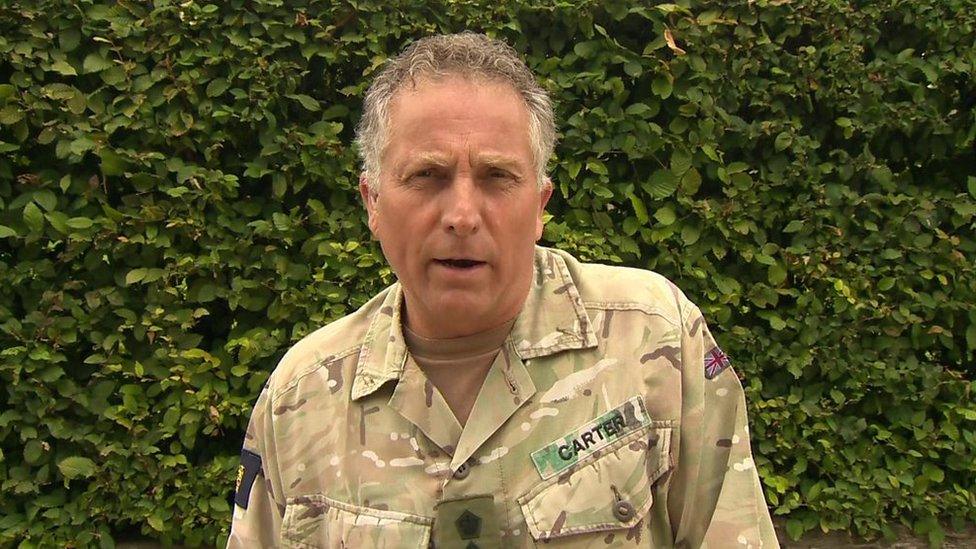The week ahead in Parliament
- Published
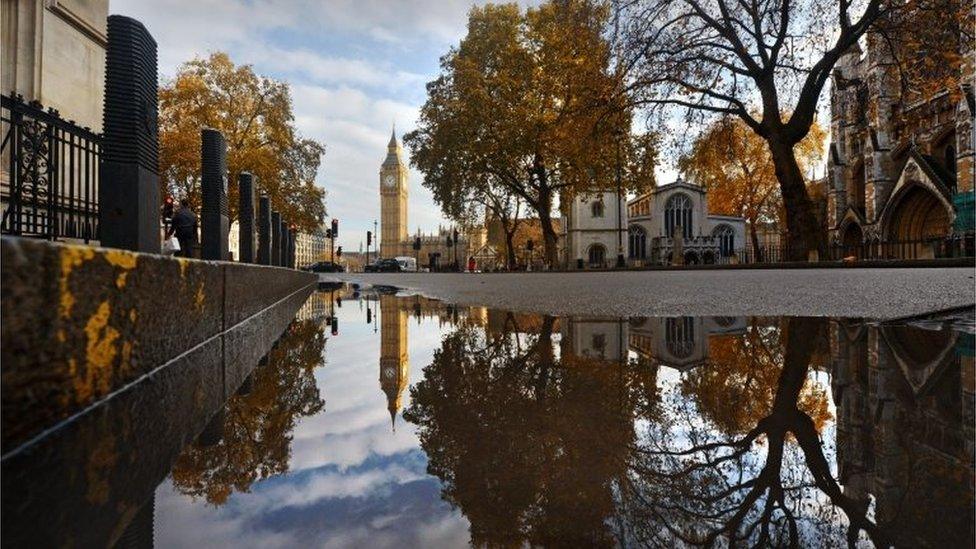
With the Budget on Wednesday and a couple of important bills in play in the Lords, it's a very big week in Parliament, which could set the political and economic tone for the coming years - and there's always the possibility of new developments on the pandemic being announced.
Keep an eye on the continuing parliamentary ping-pong over the Environment Bill, (back in the Lords on Tuesday) where peers are hoping to extract concessions on several issues from ministers, in behind the scenes talks.
Here's my rundown of the week ahead:
Monday 25 October
The Commons opens (14:30) with Michael Gove's question time debut in his new role of secretary of state for levelling up, housing, and communities.
As usual - the following slot, starting at 15:30 is prime time for any post-weekend government statements or urgent questions.
The day's main legislative action is the second reading debate on the Animal Welfare (Kept Animals) Bill - this brings in new powers to ban the export of live animals for slaughter, to tackle puppy smuggling by reducing the number of pets allowed to travel internationally, and give the government powers to increase the minimum age of imported puppies.
It will ban keeping primates as pets, give new powers to the police to protect livestock from dangerous and out of control dogs and improve the regulation of zoos.
This is not to be confused with the Animal Welfare (Sentience) Bill, currently before the Lords.

MPs will debate a bill aimed at tackling puppy smuggling
The day ends with an adjournment debate on the first anniversary of the Abraham Accords, the agreement to normalise relations between between Israel and the United Arab Emirates - the debate is led by the former Housing and Communities Secretary Robert Jenrick.
In Westminster Hall, there are two 90-minute petitions committee debate. The first (16:30) is on e-petition 550344, on university tuition fees.
Then (18:00) the debate moves on to e-petition 581641: Ban animal testing - fund, accept & promote alternatives to animal testing and e-petition 590216: Plan to phase out animal experiments.
The petition, which has more than 235,000 signatures, calls for the government to ban all animal testing in the UK, including for the development of cosmetics, household products and medicines.
Committee action includes European Scrutiny (14.30) questioning Lord Frost, the government's lead EU negotiator, on the future of the Northern Ireland Protocol and the UK's negotiations with the EU on new trade and border rules for Gibraltar.
The Communities Committee (it will have to change its name to reflect the new "levelling up" title of the department it scrutinises) looks at the long term funding of adult social care (16:00) with senior local government and care sector figures.
Public Accounts (15:30) seek to measure the government's progress towards the goal of net zero carbon emissions,
In the Lords (14:30) ministers field questions on the introduction of a men's health strategy, putting music and the arts at the heart of education in England, and rural poverty.
There will be a brief third reading rubber-stamping of the Skills and Post-16 Education Bill which will go back to the Commons after the government lost three votes on the detail of the bill.
Then peers resume their marathon eight day committee stage consideration of the Police, Crime, Sentencing and Courts Bill where there are quite a number of really significant issues being teed up for votes at the later report stage. Watch this space.
There will also be a short debate on mandatory ethnicity pay gap reporting.
Tuesday 26 October
MPs begin (11:30) with questions to the Foreign Secretary Liz Truss.
The SNP's Alan Brown presents a Ten Minute Rule Bill for a review of the electricity grid, which will consider abolishing charge differentials based on geographic location, incentivising renewable energy generation to maximise energy output, and minimising the passing on of charge fluctuation risk to consumers
Then, MPs complete their consideration of the Northern Ireland (Ministers, Elections and Petitions of Concern) Bill - this makes a series of changes to the devolution system, recommended in the January 2020 New Decade, New Approach agreement.
One aim is to prevent a situation in which Northern Ireland is left without devolved government for another prolonged period, by increasing the grace period for appointing Northern Ireland Ministers after Assembly elections.
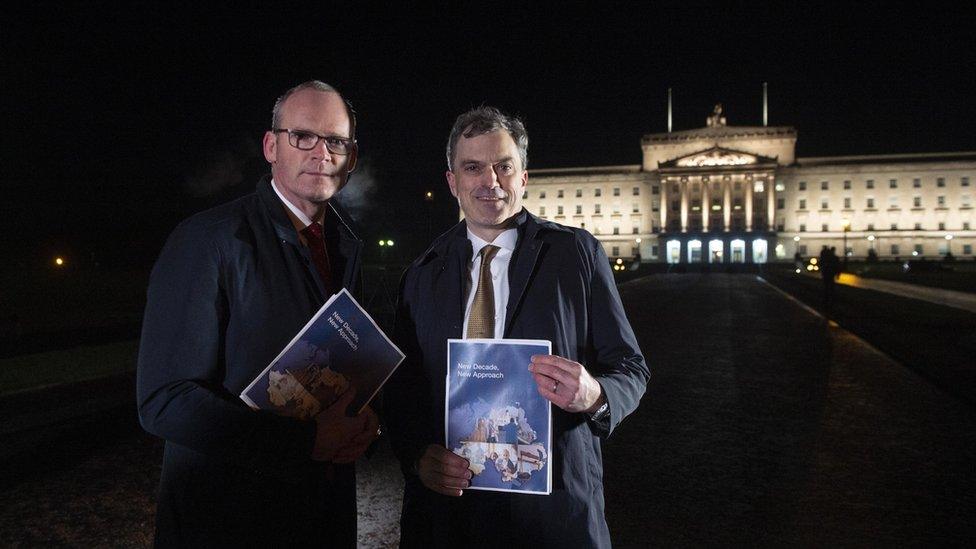
Irish government minister Simon Coveney and then-NI Secretary Julian Smith agreed the New Decade, New Approach deal in 2020
But the main legislative action is the second reading of the Judicial Review and Courts Bill - postponed after the murder of Sir David Amess.
This is a major measure which makes a variety of important changes to the operation of the justice system - including abolishing so-called "Cart" judicial reviews, which the government argues have little chance of success, but delay the removal of people with no right to be in the UK.
I wonder if we'll see a speech from its author, the former Lord Chancellor, Robert Buckland, who lost his job in the reshuffle?
In Westminster Hall my eye was caught by the debate on transport funding for Wales and HS2 (09:30) and the debate on GP appointment availability (14:30) - a subject which seems to be rising up the parliamentary agenda Joy Morrissey.
And there's also an interesting-looking debate on investment industry exposure to modern slavery (16:00)
On the Committee Corridor, the Health Committee (09:45) hears from expert witnesses about cancer services.
The committee on privileges (09:15) hears from a series of legal heavyweights on the powers of the Commons in relation to select committees and contempts.
Defence (14:30) questions Chief of the Defence Staff General Sir Nick Carter and Defence Secretary Ben Wallace on the withdrawal from Afghanistan.
In the Lords, questions to ministers cover the shortage of HGV drivers and the timetable for appointing the new chair of the broadcasting regulator Ofcom.
That's followed by a brief third reading rubber stamping of the Telecommunications (Security) Bill, before peers consider their response to the Commons votes on the Environment Bill, where the government majority rejected most of the changes made in the Lords.
Peers will vote on whether to keep pushing on issues like air quality, soil quality, protection of watercourses and the powers and independence of the proposed Office for Environmental Protection.
Proposers of the amendments are hoping that the prospect of further votes in the commons might produce some concessions.
In particular the Commons vote which rejected the Duke of Wellington's amendment on sewage discharges into rivers saw 22 Conservative MPs rebel, including former minister and Chair of the Environmental Audit Committee, Philip Dunne.
And there are behind the scenes talks to secure more concessions on this issue, so expect several attempts to send amendments back to the Commons to see if the government relents.
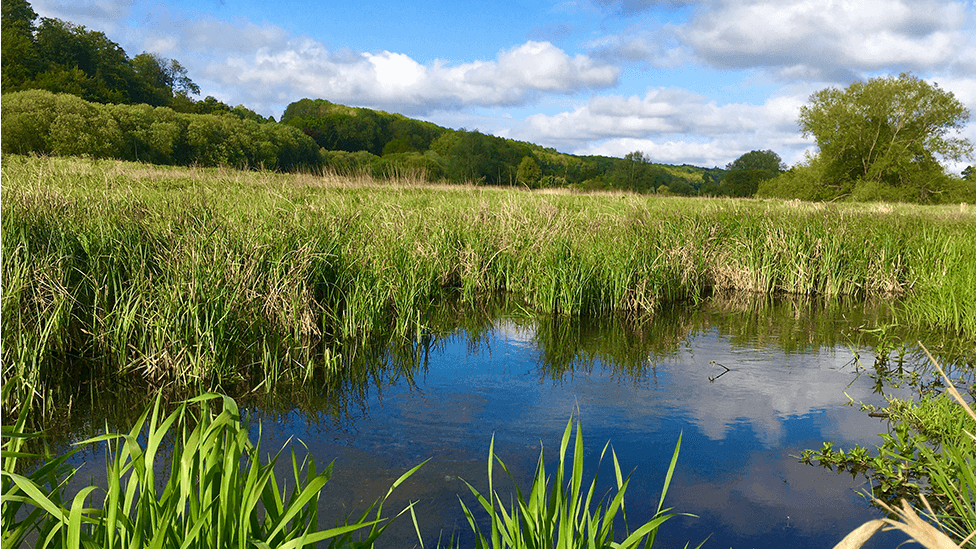
The River Chess in Buckinghamshire was affected by sewage overflows in 2020
Next peers take their first look at the detail of the Social Security (Uprating of Benefits) Bill in Committee Stage.
This is normally a kind of shadow boxing exercise, with serious attempts to rewrite a bill following at the ensuing report stage - but in this case there has been some chatter about the Conservative Baroness Stroud seeking to press an amendment to restore the £20 a week pandemic uplift to Universal Credit.
Were this to happen it would blow a multi-billion pound hole in the chancellor's spending plans on the eve of his Budget.
But opinion seems to be crystallising against it, because most experts believe it would be out of the scope of the bill, and therefore out of order, which would cost the amendment crucial votes among the Crossbench of independent peers, so the chances are that it would not pass.
Labour, meanwhile, will be proposing amendments on pensioner poverty that could foreshadow a serious challenge to the government at report stage, the following week.
Wednesday 27 October
MPs open (11:30) with half an hour of Northern Ireland questions, followed, at Noon by Prime Minister's Questions.
Then comes the main event, Rishi Sunak's Budget Statement, which will also cover the government's latest spending review.
With vast demands for more public spending coming from every quarter, this is the moment when he will have to say "No" to many of them, and start paying for the vast extra borrowing run up during the pandemic.
Sir Keir Starmer will then have to reply, in what remains the single toughest set-piece speech a leader of the opposition has to deliver, responding to a long and complex package of measures moments after they have been announced, and before they can possibly have been properly digested - while trying to give some politically meaningful riposte.
MPs will pass the normal resolutions to put the tax and excise duties into place immediately, and then the debate on the budget measures will extend into the coming week, with different themes on each day and appropriate cabinet ministers and shadow ministers opening and winding up each day.
Committee action includes Education (09:30) hearing evidence on universities and the pandemic from education minister Michelle Donelan.
And Home Affairs (10:00) questions HM Inspectorate of Constabulary and Fire and Rescue Services Sir Tom Winsor.
Environmental Audit (14:15) opens its net zero aviation and shipping inquiry, with evidence from experts on key issues and challenges of decarbonisation.
In the Lords (15:00) questions to ministers range across the government's view on the latest report of the Intergovernmental Panel on Climate Change, the share of the new Health and Social Care Levy that will go to funding social care and the rules for recording Covid vaccinations given abroad.
Then peers move on to the third of what is now eight committee stage days scrutinising the details of the Police, Crime, Sentencing and Courts Bill.
There will also be a short debate on the overseas development aid budget
Thursday 28 October
The Commons opens (09:30) with forty minutes of environment questions followed (10:10) by questions to the MPs who speak on behalf of the Church Commissioners, the House of Commons Commission, the Parliamentary Works Sponsor Body, the Public Accounts Commission and the Speaker's Committee on the Electoral Commission.
With the release of a new survey highlighting the deteriorating condition of the Palace of Westminster, the home of Parliament, expect new interest in the rumbling issue of whether MPs and Peers will have to move out to make way for repair work.
That is followed by the continuation of the budget debate, which concludes the following Tuesday 2 November.
In Westminster Hall, (13:30) Justice Committee Chair Sir Bob Neill leads a debate on his committee's report into the Coroner Service.
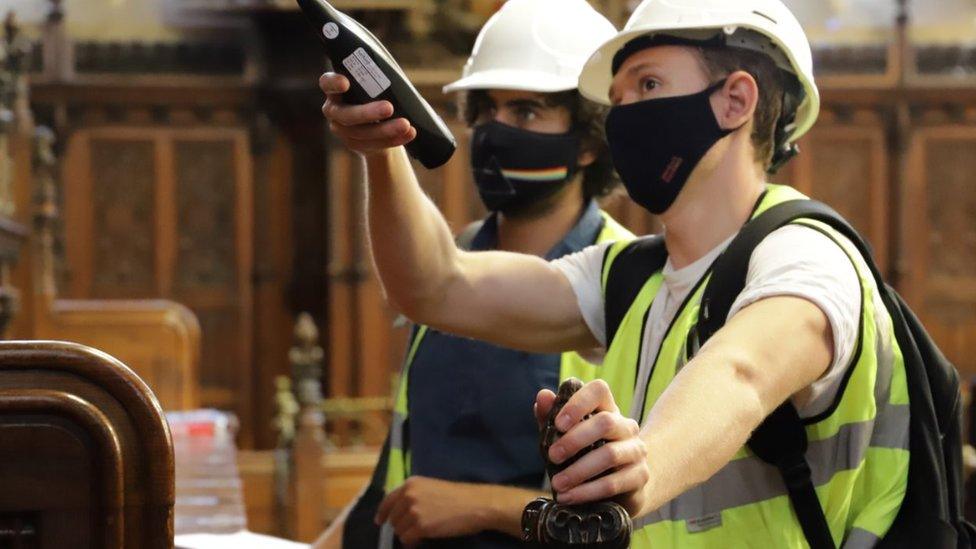
Restoration work in Parliament could cost up to £12bn
On the Committee Corridor, Welsh Affairs (10:00) questions Secretary of State Simon Hart, and Public Accounts (10:00) hears evidence on underpayments of the state pension from senior figures at the Department for Work and Pensions
In the Lords (11:00) there are questions on whether UK trade and climate policy are compatible, and on police recruitment.
That's followed by a series of debates on subjects chosen by backbench peers, starting with Baroness Young of Old Scone on integrating the planning system with other infrastructure, landscape and agricultural land processes
The Green party's Baroness Bennett of Manor Castle has a short debate on amending the Green Book and its related guidance to demonstrate global leadership as chair of COP26.
And finally the Big Issue founder, Lord Bird, has a debate on the combined impact of the end of the Coronavirus Job Retention Scheme, the reduction in Universal Credit and the upcoming rise in fuel prices, on people's ability to afford to stay in their homes
Friday 29 October
The Commons meets (9:30) to debate private members' bills - that is new laws proposed by individual MPs rather than by the government - starting with the second reading of the Labour MP Carolyn Harris's Menopause (Support and Services) Bill.
Second is the Childcare Bill from Labour MP Matt Rodda which aims to make it easier for families to access free childcare.
There are plenty more bills on the agenda - Andrew Rosindell's Animals (Penalty Notices) Bill comes next, but it is rare for the Commons to manage to get through more than three in a Friday sitting.
The Lords is not expected to sit.
Related topics
- Published21 October 2021
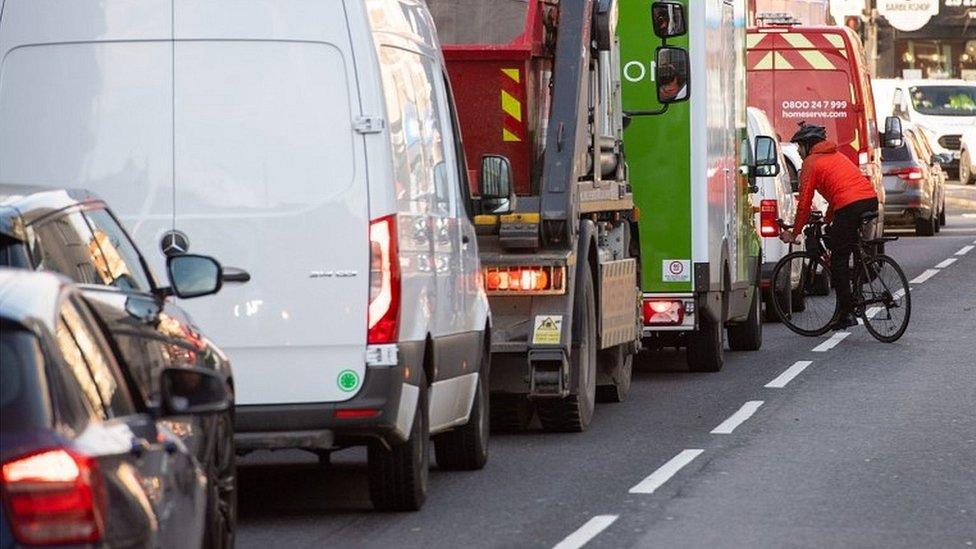
- Published12 October 2021

- Published21 August 2021

- Published4 April 2019

- Published19 October 2021
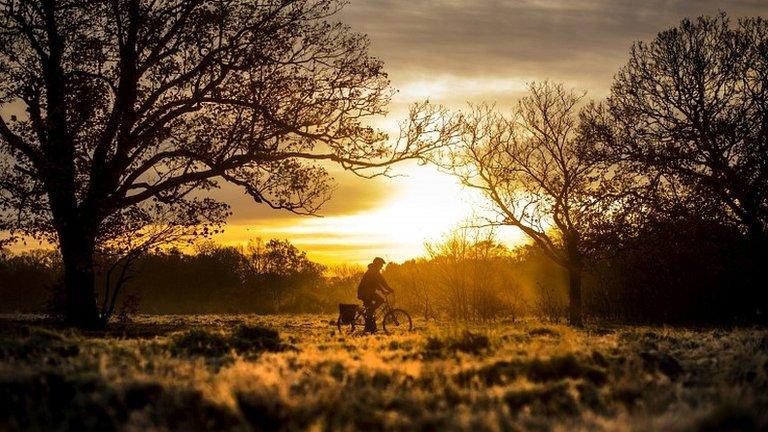
- Published5 September 2021
